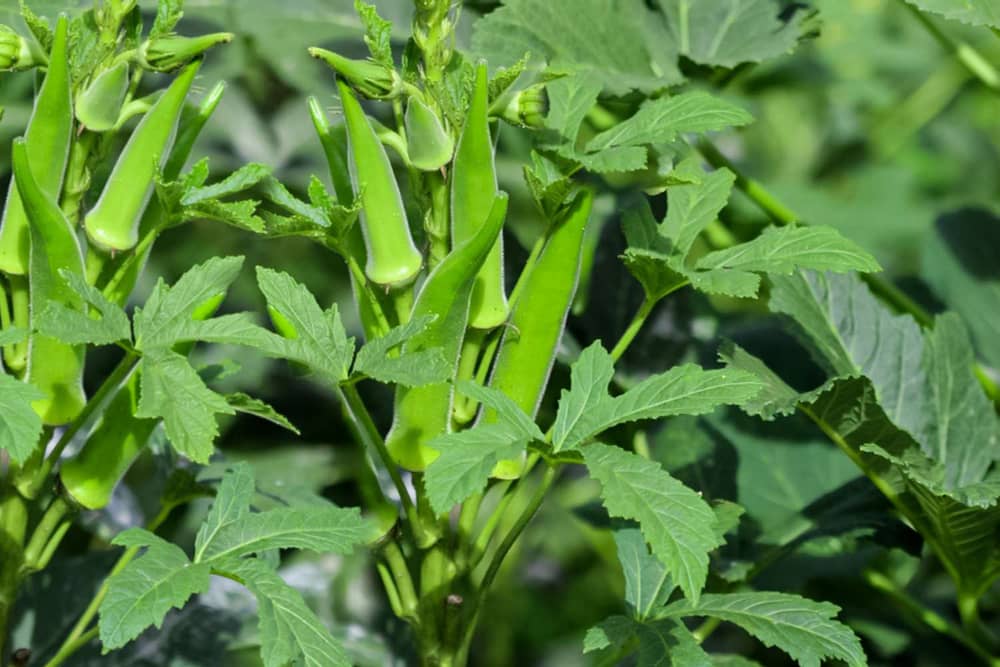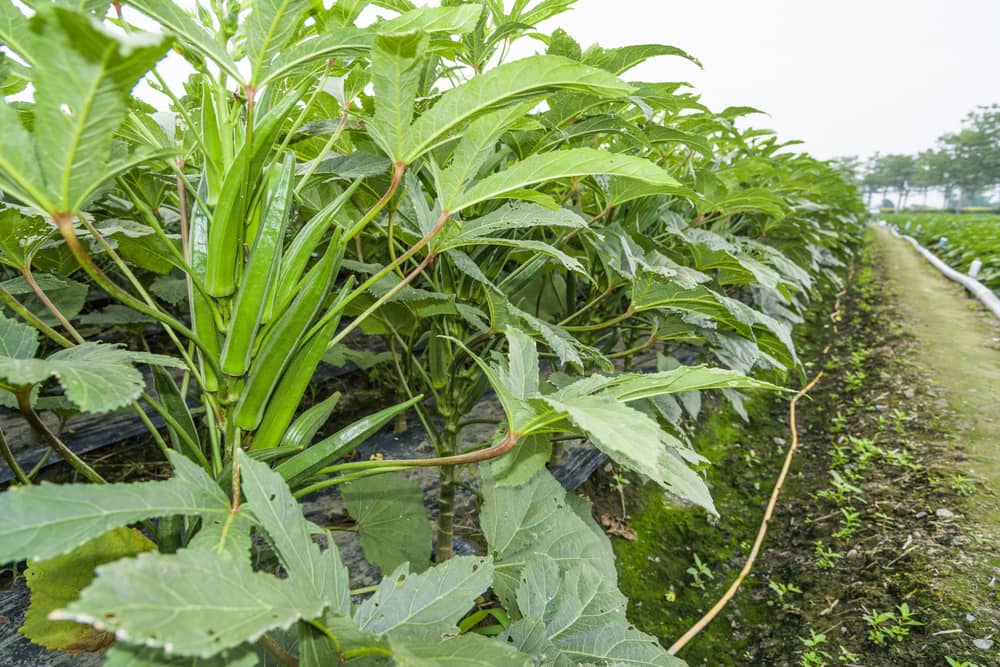Deer have a reputation for being ferocious herbivores who eat a range of different plants, shrubs, and trees. Grass, leaves, fruits, and vegetables are among the foods they eat. Okra is a well-liked warm-season vegetable that is widely grown around the world and is distinguished by its tasty seed pods. However, there is a common question among gardeners and farmers alike: do deer eat okra plants?
Indeed, deer have been observed to consume okra plants, particularly when other food sources are limited or when they find it to be a desirable option. Okra plants can sustain severe damage by deer, which can have a negative influence on crop yield and quality. As a result, farmers and gardeners must take the required precautions to safeguard their crops from deer damage.
Overall, even though deer may eat okra plants, there are strategies to stop or lessen their harm. This makes it possible for farmers to reap a plentiful harvest of this nourishing food. Let’s learn more about that!
Table of Contents
Why Do Deer Like Okra?

Because of its mild flavor, okra can be a draw for many deer. Because of their delicate architecture, young okra plants are probably well-liked by deer. Deer frequently pick soft, mild-flavored things to eat since they have ruminant digestive systems. They have far more delicate stomachs than we do.
Yet, some deer may avoid okra because it can also be rather slimy. As a result, you can never totally rely on this plant to keep deer away. Okra’s high protein content also provides deer on the go with an instant energy boost. Even the digestive system can benefit from okra.
Vitamin C, Vitamin D, Iron, Calcium, and Magnesium are among the vitamins and minerals that deer receive by eating okra. Deer benefit greatly from these vitamins and minerals.
Deer require calcium for the development and health of their bones, teeth, and antlers in addition to other body processes including milk production and metabolism. Magnesium helps deer build antlers, gain weight, and strengthen their immune systems. The fat-soluble vitamins A, D, E, K, and calcium can be kept in the deer’s fat and liver for future use.
Do Deer Eat Okra Plants?

It is well known that deer are opportunistic eaters who eat a variety of plant kinds. They consume a variety of plant materials, including leaves, bark, fruits, vegetables, and other plant components. A variety of vegetables, including okra, are among the foods that deer may consume, particularly when other food sources are insufficient or inaccessible. Thus, it is important for farmers and gardeners to comprehend the potential effects of deer on their okra harvests. In addition, they must take the required actions to reduce or avoid damage.
From seedlings to mature plants, deer damage to okra plants can happen at different phases of growth. Okra’s growth and yield can be seriously harmed by deer, who can also eat the plant’s leaves, stems, blossoms, and pods.
Okra plants that are still young and succulent are more delicate and susceptible to deer damage. Yet, mature plants can still be eaten if other food sources are scarce despite mature plants being less desirable to deer.
How To Prevent Deer From Okra?
Okra growers may encounter deer issues frequently because these animals are known to consume the plant’s leaves and fruits. Here are some recommendations for keeping deer away from your okra:
Construct A Barrier
Building a fence around your garden is one of the best ways to stop deer from getting to your okra. Try building perimeters around your okra that are a foot or so tall and a few feet tall to the edge of your yard. At least 8 feet in height and a durable material, such as wire mesh or electric fencing, should be used to construct the fence.
Use Deer Repellents
There are a variety of deer repellents on the market, such as chemical sprays or predator urine. Use garlic, spicy peppers, or other potent-smelling herbs to create your own natural repellant.
Plant Deer-Resistant Plants
Deer tend to avoid certain plants that have a strong scent or taste, therefore grow deer-resistant plants. You shouldn’t need to modify your entire fruit and vegetable register to accommodate the deer, of course. Planting asparagus, rhubarb, rosemary, oregano, cucumber, garlic, onions, and even onions can reduce the interest of deer.
Just plant these vegetables in your outer plot or even along the fence. If your garden’s outermost layers are unappealing to deer, they will be less inclined to explore the interior. You might even plant ferns that can withstand deer.
Use Scare Techniques
Another option is to employ scare techniques, such as deploying noisemakers or motion-activated sprinklers. You can keep deer away from your garden by doing this. Deer have extremely sensitive flight reactions. Consequently, you can increase your assurance that animals won’t eat your okra by hanging something that even makes a little noise along the edge of your garden.
Harvest Your Okra Frequently
Okra should be harvested often so that the deer won’t have access to as much fruit and foliage. To keep deer away from overripe fruit, try to harvest your okra every two to three days.
What Kinds Of Vegetables Deer Hate?
Strong-smelling veggies, like onions and garlic in particular, do not appeal to deer and may even serve to repel them. Deer may seek for different food sources if it has a strong odor or a distinctive fragrance.
In addition, deer don’t typically opt to consume root vegetables. Deer are typically not a problem when it comes to the veggies themselves, however they occasionally munch the leaves on top. This is due to the fact that they won’t dig for food. People prefer to eat what is easily accessible to them without making a great deal of effort.
If you’re planting sweet potatoes for your own personal use, exercise caution because deer enjoy eating them. Conversely, most deer choose to overlook common potato plants.
Last but not least, deer abhor puffy and thorny leaves. They are typically avoided because they can harm the tongues of animals. This indicates that your squash crop is probably safe from their attention.
Final Thoughts
Do deer eat okra plants? Some sources claim that deer will eat okra plants, while others claim that this is less common. Deer may or may not be motivated to eat okra depending on a number of variables, including the availability of other food sources and the local deer population. In the end, taking preventative steps like constructing fencing or using deer repellents is the best approach to save your okra plants from deer.

